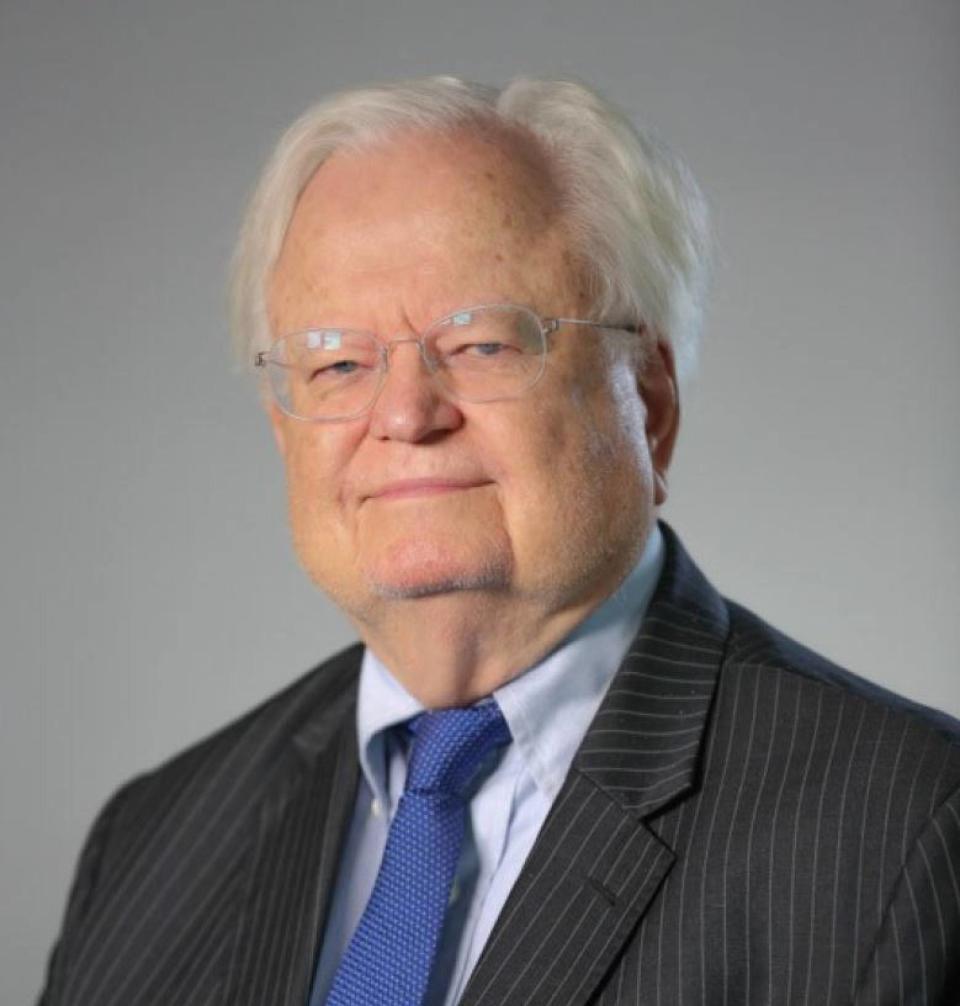US urged to join Asia-Pacific trade group, shift European forces to Indo-Pacific
The United States should join the Asia-Pacific trade bloc which former president Donald Trump left as well as shift its naval and air forces from Europe to the Indo-Pacific, two prominent Washington analysts recommend in a new book that urges a renewed "pivot to Asia".
Robert Blackwill, a senior fellow at the Council on Foreign Relations, and Richard Fontaine, the president of the Centre for a New American Security, contend that despite a strategic American reorientation to the region in 2011, during the Barack Obama administration, what followed was a decade of missed opportunities and miscalculations.
In Lost Decade: The US Pivot to Asia and the Rise of Chinese Power, they offer what they call an "overdue" to-do list for the renewal of that focus.
Do you have questions about the biggest topics and trends from around the world? Get the answers with SCMP Knowledge, our new platform of curated content with explainers, FAQs, analyses and infographics brought to you by our award-winning team.
Chief among the problems, Blackwill and Fontaine argue, is that Obama's "pivot" lacked a clear articulation, with officials involved having different understandings of its objectives and metrics for success.
But they also acknowledge that the "lost decade" can also be attributed to a range of external factors, like crises in the Middle East that diverted US attention, and the lack of truly threatening or dramatic events emanating from China.
Months before the crucial US presidential election, the book seeks to insert urgency and balance in the debate about how Washington should articulate and enact its strategy to deter war as it competes with China.
Among its proposals is a pitch for Washington to join the Comprehensive and Progressive Agreement for Trans-Pacific Partnership (CPTPP), an 11-country bloc representing one of the biggest free-trade frameworks in the Asia-Pacific, which rose from the ashes of the Trans-Pacific Partnership alliance that Trump had the US leave in 2017.
Entering CPTPP would "increase US access to lucrative Asian markets and give Washington the ability to shape rules in the region and beyond", Blackwill and Fontaine argue.
Fontaine and Blackwill, both of whom worked in the George W. Bush administration, make alliances a focal point of their recommendations - and support strengthening several initiatives President Joe Biden's administration has pursued.
Since 2021, the administration has forged or solidified multiple "minilaterals", including the Quadrilateral Security Dialogue with Australia, India and Japan, reflecting its desire to prioritise changing the environment in which China operates over direct confrontation.
But trying to counter Chinese influence everywhere, they say, is a recipe for failure. Rather than generic coalitions, Blackwill and Fontaine suggest Washington organise countries around resisting Beijing on specific issues like intellectual property theft and human rights abuses.
They also oppose requiring partners to sever ties with China, reflecting feedback from governments worldwide that do not want to have to choose between Washington and Beijing. The message, they say, should be that "Washington does not seek to suppress China's rise, but rather to establish a US-China equilibrium in the long term".
Beijing has in recent years responded to Washington's targeting of its economic and technological advancement with counter-tariffs and sabre-rattling - even while pushing the narrative that it seeks to be a partner and friend of the US.

Robert Blackwill of the Council on Foreign Relations. Photo: Handout alt=Robert Blackwill of the Council on Foreign Relations. Photo: Handout>
In terms of alliances, the authors say the US should prioritise Europe and further encourage it to wield its international regulatory power, noting that the EU had until 2022 been reluctant to take a harder line on Beijing given its reliance on the Chinese market.
But at the same time, they argue the US should decrease military activity in the Middle East, and move air and naval forces from Europe to Asia.
"Russia will pose no serious conventional military threat to Nato allies in Europe for the foreseeable future," they say, noting that Moscow's military strength is "significantly less" than Washington believed before its 2022 invasion of Ukraine.
Redirection does not mean abandonment. To meet the Asia challenge while remaining prepared for acute crises elsewhere, Blackwill and Fontaine call for a substantial increase of the US defence budget. While it already surpasses US$840 billion, they argue that it matches 1999's budget as "the lowest level since 1953" in percentage of GDP terms.
Echoing Biden's national strategy on China, Blackwill and Fontaine say that dealing with Beijing, unlike Moscow, is a "far more differentiated and complex challenge".
They are not optimistic about bilateral cooperation, asserting that China has weaponised collaboration on transnational issues, like when Beijing suspended a climate working group after then-House speaker Nancy Pelosi visited Taiwan in 2022.
Washington, they say, must be willing to accept tension with Beijing in the "near and medium term" - arguing that this would improve chances of long-term equilibrium.
This includes supporting the growth of democratic institutions worldwide, and making US values clear to allies and partners.
Still, the authors believe in sustained US-China diplomacy, arguing, in a rebuke of prominent Republican voices, that it complements a competitive approach towards Beijing rather than undermining US toughness.

Richard Fontaine of the Centre for a New American Security. Photo: Abby Greenawalt alt=Richard Fontaine of the Centre for a New American Security. Photo: Abby Greenawalt>
Since last year, the Biden administration restarted what it calls "intensive diplomacy" whereby high-level officials from both sides meet to manage differences. Here, they say more is better.
In line with long-standing US policy, Blackwill and Fontaine push for "rigorous" adherence to the one-China Policy - Washington's acknowledgement that there is only one sovereign state called China - and public rejections of Taiwanese independence or regime change in China.
And, to avoid hampering coalition-building, they also criticise any attempts to draw rigid lines between democracies and autocracies, including Biden's Summit for Democracy, which gathers a select group of countries annually.
While they applaud many Biden policies, the authors argue that overall they are "insufficient" to meet China's challenge.
Blackwill and Fontaine leave on an optimistic note, saying the US has what it needs to mark a "decisive decade" in the competition with China.
"At a time of bitter domestic strife, many issues will push our political leaders apart ... Renewing the pivot to Asia should help bring them together."
This article originally appeared in the South China Morning Post (SCMP), the most authoritative voice reporting on China and Asia for more than a century. For more SCMP stories, please explore the SCMP app or visit the SCMP's Facebook and Twitter pages. Copyright © 2024 South China Morning Post Publishers Ltd. All rights reserved.
Copyright (c) 2024. South China Morning Post Publishers Ltd. All rights reserved.

 Yahoo Finance
Yahoo Finance